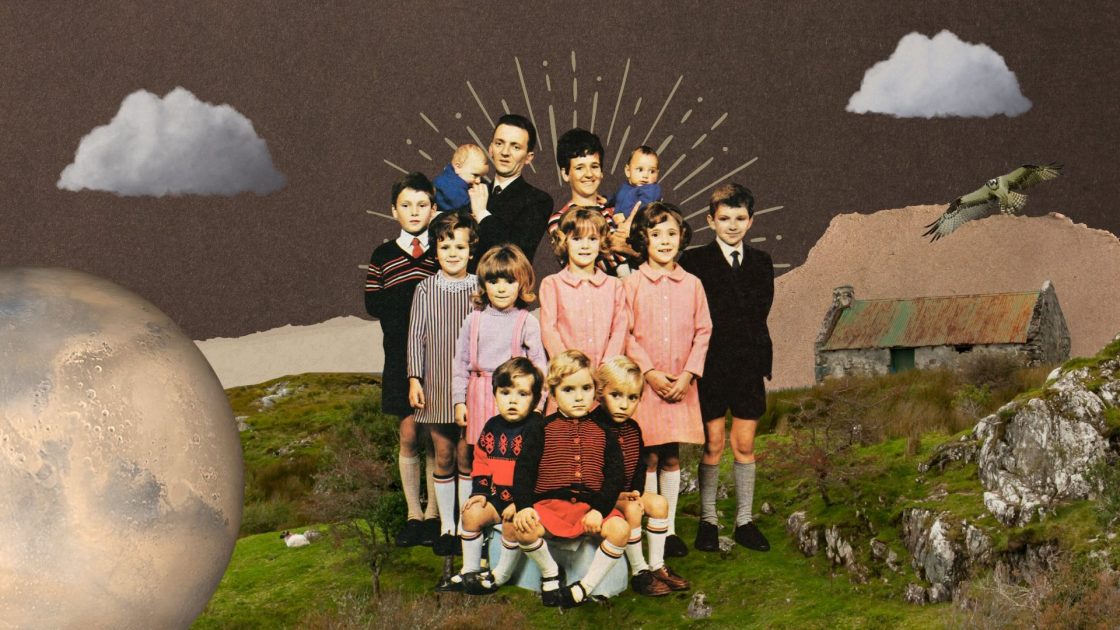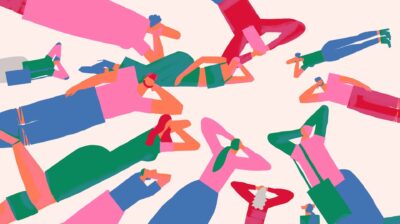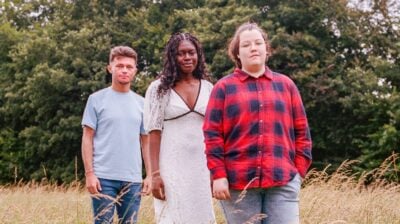What I learned about women in Ireland from a TV show before my time
Watching a forgotten RTÉ show opened Amy’s eyes to the lives of women in Ireland and how far we have come.

Feminism in Ireland has had an incredible impact on the lives of women in this country. Though there is still progress needed, RTÉ’s ‘Housewife of the Year’ documentary is a stark reminder of that impact.
Considering the contest was aired before my time, I had never heard of it, and I certainly could never have imagined it was such a popular occasion. If, like me, you are unaware, ‘Housewife of the Year’ was a competition that took place between 1967 and 1995. It saw women from across Ireland compete on primetime RTÉ television for the title of ‘Housewife of the Year’. The ultimate prize to be won was that of a luxury gas cooker.
Women, but only as wives and mothers
The documentary showed snippets from the real show ‘back in the day’ and I was aghast to see women paraded around, demonstrating what lovely wives they were, being asked how many children they had and spending more time talking about their husbands than themselves. Of course, the Ireland they lived in was different.
It was a very different time, and they were so proud to be on national television, being praised for the role they played in the home. I’m sure they were excellent wives and mothers, but that’s not the issue; the problem was that they could pretty much only be wives and mothers. Any option outside the realm of the household was inconceivable.
When rights were limited by marriage
Though the Irish Free State, emerging in 1922, gave equal voting rights to men and women. The lives of women in Ireland were still immensely restricted in the 1960s, 70s and 80s.
As a law student and feminist, watching the documentary prompted me to remind myself of women’s rights at the time. The marriage bar in Ireland required women working as civil and public servants to leave their jobs when they got married, so they would have time to stay at home and be housewives.
They were also expected to have children instead of working. Some of the women in the competition had over a dozen, often whilst they were still quite young themselves.
This bar officially ended in 1973 for civil servants and in 1974 for the wider public sector. However, Family Planning and autonomy were still not recognised in popular culture at that point, given that contraception was partially legalised in Ireland in 1979 with the Health (Family Planning) Act and further access granted in 1985.
Even so, women did not have equality in this country. Divorce was not legalised in Ireland until 1995, same-sex marriage was only legalised following a referendum in 2015, and abortion wasn’t legalised until as recently as 2019.
The pageant of perfect womanhood
This societal backdrop exudes through the show ‘Housewife of the Year’, it felt to me as though women being interviewed were more like dolls or puppets playing a part than as people with thoughts, feelings, emotions and valuable experiences.
However, the show propped up the devotion of ‘Housewife’ as something glamorous and perfect, which hardly any job is. The show was like a particular type of pageant where the women were judged on qualities such as their sense of humour, budgeting skills, civic-mindedness and ability to prepare a meal with a personality interview by Gay Byrne.
Today, choice is everything
Nowadays, a woman decides to work or to study or to travel or to be a mother or to have a relationship or to marry, and every woman’s choice to be one or all of those things ought to be respected.
It is fundamental to an equal society that such a choice is truly her own, and nowadays, we still have barriers to equality. However, it shocked me how ingrained the assumption is that women would fully give over their time, their passions, and essentially, their lives for their families. I don’t wish to minimise the achievements of the women who won or participated because I was surprised by how many of the women truly spoke positively about the show because they had pride in their work and worked hard every day.
Of course, they deserved recognition. Even so, sitting on my couch with my Mam and Dad, who both went to college, work, raise a family together and have always encouraged me to pursue my interests, I began to wonder. How could young girls in a society broadcasting ‘Housewife of the Year’ begin to have their own dreams, to think they could aspire to anything else?
The show was eventually renamed ‘Housemaker of the Year’ in 1995 to reflect a change in societal values and to open up the contest to men. However, this version of the show did not last long.
The strength of the women before us
The RTÉ film followed the stories of 10 individual women who opened up about their lives. I was amazed at how fondly they spoke about the show in interviews. It was wonderful to have an opportunity to hear from older women in Ireland. I have been so fortunate to learn so much from my two Nanas, and I don’t just mean how to bake a lovely scone and brew a cup of tea. They showed me how to be resilient and strong, but also loving, caring and kind.
Amidst what may have seemed like an ordinary Irish chat about the weather or school, my grandparents would recall for me how different things were for them as women when they were younger. I got my feminism from them, not that I think either of them would call themselves ‘a feminist’ per se.
I remind myself occasionally that over the course of the four years I will spend studying Law at University, they would’ve been married and had their first child. This inevitably would have been followed by giving up both of their jobs.
I was really glad that this documentary gives other people a chance to learn from our older generation of women. It shows just how important it is that the rights and options we are fortunate to have in modern times are always afforded to women. From all these women’s stories, I felt grateful for my freedom but also motivated because I was reminded of how vital it is to be an active feminist involved in supporting other women and fighting for full equity.
Ann Lovett and the legacy of silence
The women delve into the lack of contraception, the shame that engulfed homes in Ireland, the impacts of the Magdalene Laundries and so on. It was harrowing and heartbreaking to listen to at times, but unless we face that history, we cannot begin to understand what these women went through.
I was reminded of this line from Paula Meehan’s poem, ‘The Statue of the Virgin at Granard Speaks’, ‘without a midwife or doctor or friend to hold her hand and she pushed her secret out into the night, far from the town tucked up in little scandals.’
I studied the Meehan last year as part of the English Leaving Certificate course. The young woman in the poem, Ann Lovett, died soon after giving birth beside a grotto on 31 January 1984.
Her baby son died at the same time. As documented by Rosita Boland in the Irish Times, she fell victim to the shame that enshrouded our state and died alone, without help, support or feeling loved.
Why we still need feminism
Ireland is still not perfect, and we ought to work together as young people to write a new narrative for all genders in our country. However, since the death of Ann Lovett, abortion is an option for women in Ireland, and since the ‘Housewife of the Year’ TV show, women have access to free contraception, can marry people of any gender, can work regardless of whether they marry, and still have families if they choose to do so.
Equality is possible, and I feel confident in saying that because this film reminded me of just how far we’ve come since its broadcast. Nowadays, More than 1 in 3 women in Ireland have experienced domestic abuse, and An Garda Síochána responded to over 65,000 domestic abuse incidents in 2024, which translates to an average of 1,250 incidents every week.
Period poverty, the gender pay gap, stereotyping and a lack of women in leadership roles are also issues that still permeate our culture. There is more work to be done to improve the lives of women, and also men, in Irish society.
Gratitude, hope, and a call to action
Through volunteering with PLAN International, an organisation working to break down barriers the gender equality and Mná Feasa, a domestic violence service- I’ve seen first-hand, not only the problems at hand, but also the fantastic work being done to achieve progress.
I am so grateful for the leaps and bounds made thus far and using that as my hopeful, guiding light- I will continue to get organised, learn about feminism and support other women.
Feeling overwhelmed and want to talk to someone?
- Get anonymous support 24/7 with our text message support service
- Connect with a trained volunteer who will listen to you, and help you to move forward feeling better
- Whatsapp us now or free-text SPUNOUT to 50808 to begin.
- Find out more about our text message support service
If you are a customer of the 48 or An Post network or cannot get through using the ‘50808’ short code please text HELLO to 086 1800 280 (standard message rates may apply). Some smaller networks do not support short codes like ‘50808’.






